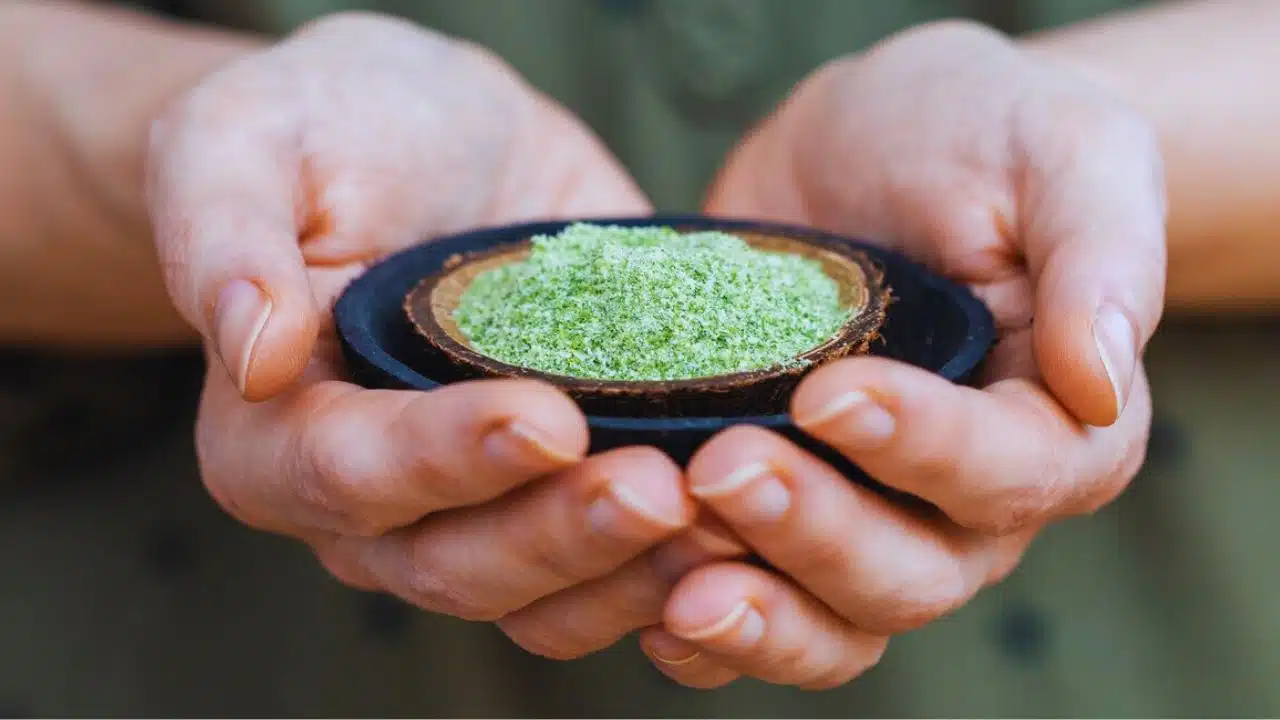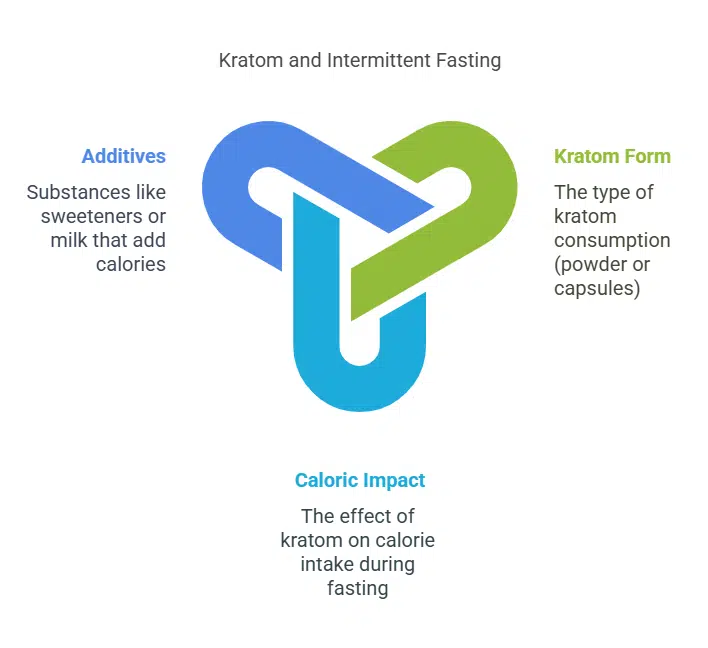Kratom (Mitragyna speciosa) has gained popularity as a natural supplement, widely used for energy, relaxation, or pain relief. However, many health-conscious individuals wonder about its nutritional value- does kratom have calories? If so, how many? And can it affect weight or metabolism?
This guide explores kratom’s caloric content, nutritional breakdown, and impact on metabolism. Whether you’re a casual user or someone incorporating kratom into a fitness routine, understanding its dietary implications is essential.
Does Kratom Contain Calories?
Kratom’s Nutritional Value: A Low-Calorie Herb
Kratom is primarily consumed as a powder, tea, or capsule. Unlike common dietary supplements, it’s not used for its nutritional benefits. In reality, kratom contains very few calories, making it an insignificant contributor to daily energy intake.
The calorie content in kratom comes primarily from its plant fiber. On average, a 2-gram serving of kratom powder contains around 7–10 calories. This is comparable to a sip of milk or a small pinch of sugar—negligible for most diets.
Why Is Kratom Low in Calories?
The primary reason that kratom is so low in calories is its high fiber content and lack of digestible carbohydrates. Since fiber isn’t fully broken down for energy, kratom provides little to no usable calories. Its active alkaloids (such as mitragynine and 7-hydroxymitragynine) don’t contribute to calorie intake, as they function at a molecular level rather than as macronutrients.
If you’re looking for a trusted kratom store, it’s essential to choose vendors like Happy Go Leafy that provide high-quality, lab-tested products to ensure purity and effectiveness.
Kratom’s Nutritional Breakdown
While kratom has a minimal caloric impact, here’s a basic overview of what’s in a standard 2-gram serving:
- Carbohydrates: ~1.5g (mostly fiber, with negligible sugar or starch)
- Protein: ~0.2g
- Fat: <0.1g
- Calories: ~7–10 kcal
- Minerals: Trace amounts of calcium, potassium, and iron
- Vitamins: Tiny amounts of vitamins A, C, E, and some B vitamins
- Antioxidants: Flavonoids and polyphenols, similar to those in green tea
Though kratom contains trace minerals and antioxidants, it isn’t a significant source of nutrients. You won’t get any meaningful vitamins or minerals from consuming kratom, so a balanced diet remains essential.
Will Kratom Break A Fast?
Many users consume kratom while intermittent fasting and wonder if it interferes with fasting benefits. Given its negligible calorie count, plain kratom powder or capsules are unlikely to “break” a fast. However, adding sweeteners, honey, or milk to kratom tea introduces calories and may disrupt fasting.
The Impact of Kratom on Weight and Metabolism
While kratom itself is low in calories, it can still affect metabolism and appetite. Here’s how:
1. Appetite Suppression
Some users report that kratom reduces hunger, making it easier to consume fewer calories throughout the day. This effect is more pronounced with stimulating strains, such as White Maeng Da and Green Malay.
2. Increased Energy and Activity
Certain kratom strains act as natural stimulants, leading to increased energy expenditure. Users may find themselves more active, indirectly burning more calories. If taken before a workout, Kratom can potentially enhance physical endurance.
3. “Kratom Munchies” – Increased Appetite in Some Users
While many experience appetite suppression, others report increased hunger (often after the effects wear off). The impact largely depends on strain, dosage, and individual response.
4. Potential Metabolic Influence
Early research suggests that kratom may have mild metabolic effects, including influencing fat digestion and storage. A 2022 study found that regular kratom users had lower body fat percentages and better metabolic health markers compared to non-users. However, more research is needed to confirm these effects.
5. Kratom and Fat Digestion
Some studies suggest that kratom may interact with enzymes that regulate fat metabolism, potentially reducing fat absorption. This could be beneficial for those looking to manage their weight, though more research is needed to draw firm conclusions.
6. Can Kratom Replace Caffeine for Energy and Focus?
Many kratom users replace their morning coffee with kratom due to its stimulating effects. Unlike caffeine, Kratom provides energy without the jitters and has a longer-lasting impact on focus and motivation. This can help individuals stay more active throughout the day, indirectly aiding in weight management.
Do Different Kratom Strains Have Different Calories?
All kratom strains—whether Red, White, or Green Vein—contain similar caloric content. Any differences in weight-related effects come from their alkaloid composition, which affects appetite and energy levels. For instance:
- Green Malay and White strains tend to be more energizing, potentially promoting activity and reducing appetite.
- Red Vein Kratom is often more relaxing and less likely to suppress hunger.
Regardless of the strain, Kratom alone doesn’t provide enough calories to influence weight gain or loss significantly.
How to Incorporate Kratom into a Healthy Lifestyle?
If you’re using kratom as part of a wellness routine, here are a few tips to optimize its benefits:
- Pair it with exercise: Taking an energizing kratom strain before a workout may help enhance stamina and endurance.
- Maintain a balanced diet: Kratom doesn’t replace essential nutrients, so ensure you’re eating a well-rounded diet.
- Stay hydrated: Some users experience dehydration when taking Kratom, so drinking enough water is crucial.
- Monitor your intake: While kratom can support energy and appetite control, excessive consumption may lead to dependency. Use it in moderation.
Conclusion: Kratom’s Place in a Healthy Diet
So, does kratom have calories? Yes, but barely. With just 7–10 calories per serving, kratom is nutritionally negligible and unlikely to impact your diet or weight significantly. However, it can influence appetite and energy levels, which may indirectly affect eating habits.
For those seeking a reliable kratom store, it’s essential to choose a reputable vendor that provides pure, unadulterated kratom without unnecessary additives. Additionally, those looking for balanced effects may find that strains like Green Malay offer a middle ground between energy and relaxation.
Thus, Kratom is an herbal supplement, not a dietary product. Whether it’s part of your wellness routine or a tool for relaxation, its impact on weight and metabolism depends largely on how you use it. As always, moderation and balance are key!






































